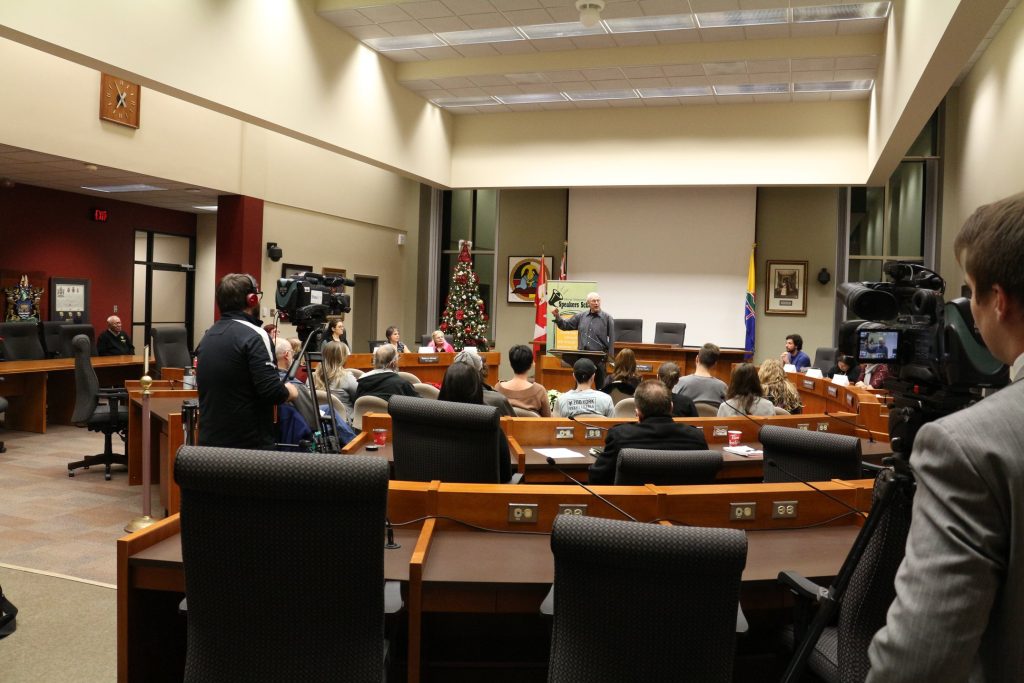A Story From New Directions Speakers School
Maris* thought her life was always going to be the same. An Indigenous woman in her late 40s, she described herself as a struggling alcoholic with a history of mental health challenges. She laughs, saying how well the staff at the Thunder Bay Hospital know her for the worst of her times, though she adds that she never tells them everything. Maris lives with her husband and adult child, and notes that they all drink. She’s thought about stopping, and has attended treatment in the past, but doesn’t feel it makes a difference if the rest of her family won’t stop drinking. She expressed that she never really felt like her opinions mattered and that it was usually easier to just go with the flow even when she didn’t like it.
Maris disclosed that she joined New Directions Speakers’ School because she never feels like anyone listens to her because of who she is and wanted to learn how to speak up more. Initially, she and her husband registered together, but he chose to stop attending the program early on. Maris considered leaving as well, but after some conversations with the course facilitator and developing a friend in one of the other participants she opted to remain for the program. This buddy system proved to be valuable for Maris; in addition to weekly calls with the facilitator to check in outside of class, she also noted that she and her new friend had started meeting for coffee and a walks once or twice a week, usually at the marina, or Boulevard Lake. In her time with Speakers’ School she also received referrals for ongoing support through the Thunder Bay Indigenous Friendship Centre, resulting in her also completing an application for addiction treatment for not only herself but also her adult child. Maris also started attending cultural programming, as well as participating in programs such as a book club. She reported feeling more connected than she had before and stated she had increasing hope for the future.
Most directly, however, Maris went from not feeling comfortable appearing on camera or speaking in class to being able to share openly, and participate on camera fully by the end of the course. In evaluation she felt like the course had changed her ability to communicate well, and she wanted to share her story – which she stated was “still being written” – as a means to help others. She and her child ultimately did attend treatment, and at this time of writing she states that they have both maintained their sobriety and regularly attend programming and counselling to support this. Her husband currently does not live at home, but she reports that the support she has received has helped her to accept this. She says that she feels in control of her life for the first time in a long time and that she finally feels like she matters.


